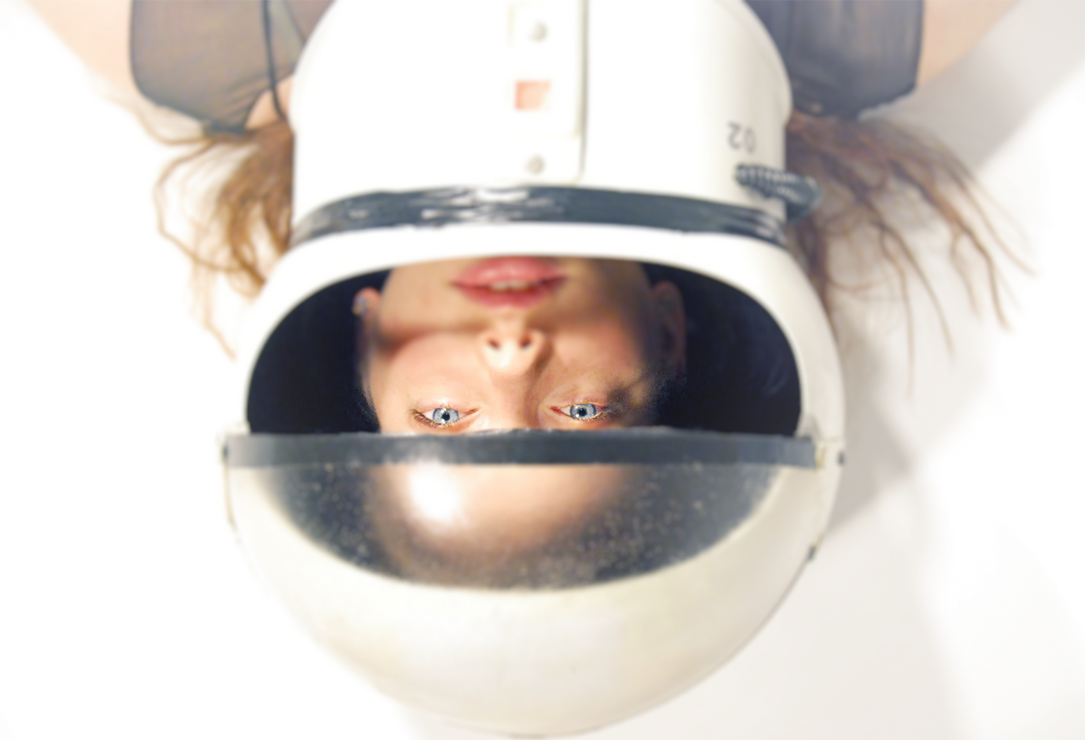Presented by Science Fiction Theatre Company
By A. Vincent Ularich
Directed by Anna Trachtman
The Factory Theatre
Boston, MA
May 10th – May 25th, 2013
Review by Craig Idlebrook
(Boston) Oh, science fiction looks so easy to do when you have a CGI budget and a sleek deck of a starship to command, but it can be deadly to stage, especially when you’re working with a new play. It’s then that we learn that space thrusters look ridiculous when constructed by duct tape, and phrases like “reverse the ion thrusters” just don’t roll off the tongue.
That’s what makes the sci-fi play Solace, written by Boston playwright A. Vincent Ularich, such a marvel. For my money, this production, staged imaginatively and thoughtfully by the Science Fiction Theatre Company, is the sweetest surprise of the theater season. Ularich, director Anna Trachtman and the strong overall cast have conjured up a love story about the future that retains all the heart of the present. This play’s flaws quickly fell by the wayside, as I was drawn into the funny, sad and evocative world created on stage.
Julia (Erin Eva Butcher), a rock star theoretical engineer, finds herself adrift on Earth as her husband, Thomas (Joseph Kidawski), is set adrift in the galaxy, the victim of an industrial space accident. Julia is asked to play the widow by those around her, since Thomas’s company believes there’s no real way to find him before he dies, but she refuses to give up hope because the loss is too much to contemplate. Aided by the hologram of a global-positioning device, Prius (Gabriel Graetz), Julia takes a leap of faith and sets off to find the missing part of her.
Ularich’s script and Trachtman’s pacing help this play stay focused by delving into the small things that continue around us during life’s dramatic moments. Julia, a natural introvert, is never allowed to sink into naval-gazing despair because the outside world (a pushy mother, a mean boss) keeps crowding in on her cloud, spurring her to take action. This play also works because of its ability to wear many hats. We never are allowed to dwell in one facet, be it the horror of being marooned in space or the sitcom-like frustration of working for a boss dumber than you, yet each aspect of Julia’s journey is fully developed and explored.
Butcher pulls off the rare feat of creating an introvert that is both inscrutable and accessible enough for us to love. Julia selfishly guards her pain throughout much of the play, but Butcher lets us in just enough that we don’t want to leave her to her own devices. Julia is not a natural fit in human company, which is why perhaps she is best drawn out by an almost-human device of her own creation. Graetz nails playing a robot to Data-like perfection, minus the schmaltz. Prius may not completely get humans, but he’s seen enough to know they need to get called on the carpet for their illogical attitudes. And he processes everything verbally, making him the perfect foil to Julia, who tries steadfastly not to share what she’s thinking.
What’s fascinating about a really good piece of theater is that its flaws are often so exposed, and that’s okay. The first act unfolds for too long, and while the play is going for a molecular “What the Bleep Do We Know?” kind of ending, it really only achieves “WTF?” It doesn’t matter, because during the journey, this sci-fi script illuminates so much, giving the audience a visceral feeling of what it’s like to be in limbo and what it takes to break free.

